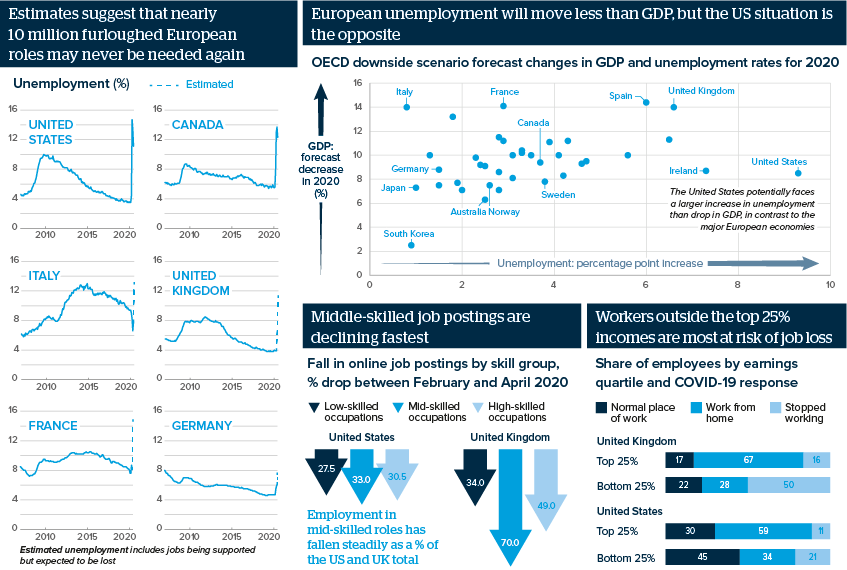Joblessness will rise as job-save policies are unwound
Policies have reduced the damage COVID-19 has done to Western job markets but these temporary schemes have to be unwound
Source: OECD Employment Outlook, OECD Economic Outlook, National Authorities, Allianz SE
Outlook
In Europe, more than 40 million workers have been paid to work far fewer hours. In the United States, nearly 40 million have claimed unemployment benefit.
US policymakers have focused on paying unemployed workers extra benefit while they find re-employment. Unemployment has quadrupled. European policymakers have focused on protecting households and firms by keeping employees in place for the recovery, capping unemployment.
Unwinding all schemes will be challenging. Millions will struggle to find jobs, increasing long-term unemployment and associated economic, political and social costs. Additionally, the longer that workers remain in jobs in sectors that may never recover, or roles that could be automated, the lower longer-term productivity will be.
Impacts
- COVID-19 will hasten the multi-decade trend of fewer mid-skilled jobs being done, with wide economic, political and social implications.
- Lifelong learning may be key to matching workers with high-skilled jobs, working conditions key to matching workers with low-skilled jobs.
- Nations in crisis-containing mode may neglect policies to reskill and re-equip workers, despite these being key to economies rebounding.
- One-third or fewer of the lowest 25% of US and UK earners are working remotely; social security and re-skilling is key for these workers.
See also
- Churn of firms and jobs should stimulate productivity - Sep 6, 2021
- Prospects for the global economy to end-2021 - Jul 2, 2021
- Inequalities will widen during the job market recovery - Jan 26, 2021
- Prospects for the global economy in 2021 - Dec 1, 2020
- US recovery of GDP and jobs will vary widely by region - Oct 21, 2020
- IMF study suggests that lockdowns are worth the cost - Oct 9, 2020
- Prospects for the global economy to end-2020 - Jun 30, 2020
- More graphic analysis
